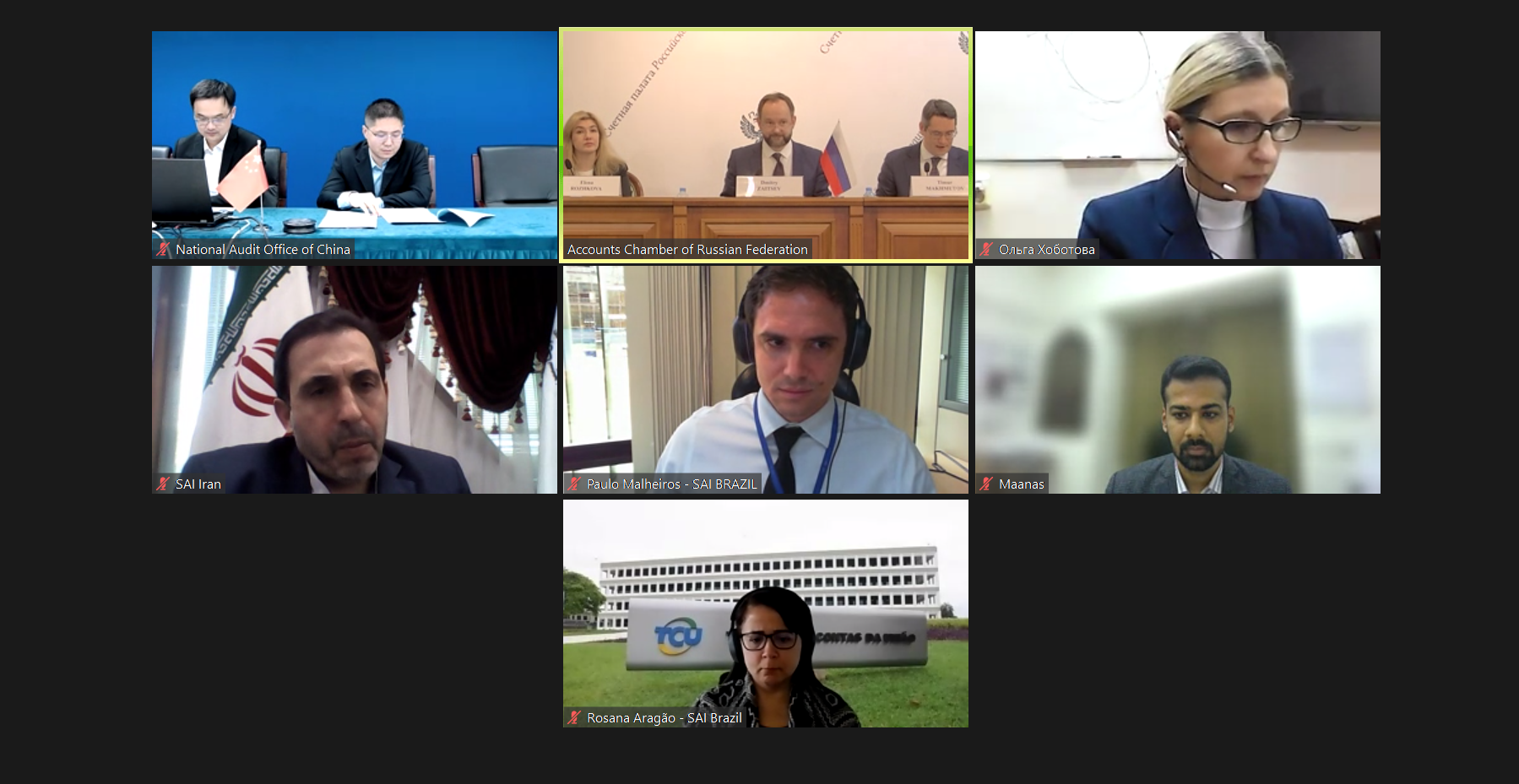
BRICS SAIs exchange experience in auditing higher education institutions
On 11 December 2023, the BRICS supreme audit institutions shared their experiences in auditing the outcomes in higher education.
In his welcoming remarks, Mr. Timur Makhmutov, Director of the Department for International and Regional Cooperation of the Accounts Chamber of the Russian Federation, emphasised the importance of government support for universities and stressed the SAIs’ role in preventing irregularities in this area.
The presentation of Mr. Dmitry Zaitsev, Auditor, Member of the Board of the Accounts Chamber of the Russian Federation, opened the discussion. The speaker elaborated on the key outcomes of budgetary and thematic audits conducted by SAI Russia in higher education over the past four years. Budgetary audits, which are carried out on an annual basis, analyse the use of budget funds, the efficiency of federal property management, the financing of state assignments and procurement activities. The main subject of thematic audits is to assess the performance of university development programmes, both for each university and as a whole. Thematic audits of universities were initiated in 2019 with the audit of the regional flagship universities development programmes, which are aimed at providing regional labour market with highly qualified specialists and tackling current regional economic tasks.
In 2020–2021, the Accounts Chamber of the Russian Federation audited the results of the Project 5-100 academic leadership programme. In 2022, SAI Russia completed the audit of the development programmes of Russia’s two leading universities – Lomonosov Moscow State University and St. Petersburg State University. In 2024, the Accounts Chamber plans to review the interim results of the new Priority 2030 strategic academic leadership programme, which was launched in 2021 and replaced Project 5-100.
Mr. Maanas Bajpai and Mr. Ankush Kumar, Deputy Accountants General of the Office of the Comptroller and Auditor General of the Republic of India, presented SAI India’s experience. The speakers mentioned that, when conducting higher education audits, it is necessary to take into account not only the statistics on the activity of the higher education institutions, but also the data on the subsequent employment of graduates. SAI India also considers the coverage of women and representatives of marginalised social groups by higher education programs, qualification of teachers, internships for students and other indicators.
Mr. Sun Guowei, Deputy Director of the Education Audit Bureau of the National Audit Office of the People’s Republic of China, highlighted the methods of auditing universities in China. The most common audit method used by inspectors is the audit of university accounts. A lot of attention is also paid to procurement data and information on income from training. In addition, SAI China evaluates the use of the facilities of higher education institutions and examines the details of research projects that have not been completed on time. The speaker noted that SAI China uses a special information system to monitor the rectification of identified problems.
Ms. Kgabo Komape, Business Unit Leader of the National Audit Business Unit responsible for Higher Education, and Ms. Michelle Magermann, Deputy Business Unit Leader of the National Audit Business Unit the Office of the Auditor General of the Republic of South Africa presented the auditing experience of SAI South Africa.
Representatives of the Court of Accounts of the Federal Republic of Brazil and the Supreme Audit Court of the Islamic Republic of Iran also took part in the discussion (Iran will join BRICS in 2024).
The participants of the seminar stressed the relevance of the discussion and expressed their hope to continue sharing best practices within BRICS SAIs format on a regular basis.



